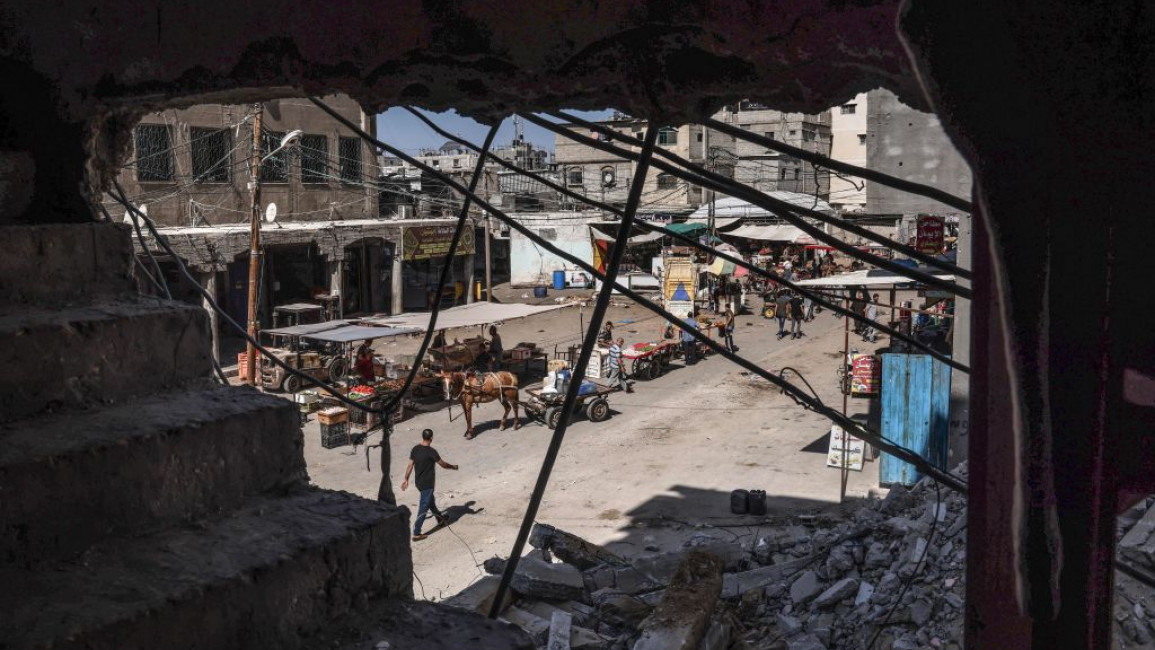Israel to issue 3,000 new work permits for Gazans, though illegal siege ongoing
Israel will increase the number of Palestinian workers it permits to enter the Jewish state from the Gaza Strip, the Israeli military body that manages Palestinian civilian affairs within illegally occupied Palestine announced on Wednesday.
This is seemingly meant to bolster a fragile ceasefire between the sides, despite Israel having bombed Gaza on multiple occasions after the truce came into effect.
Gaza’s more than 2 million Palestinian residents have lived under a crushing Israeli-Egyptian blockade since the Islamic militant group Hamas seized power from rival Palestinian forces in 2007 after winning the country's legislative elections in 2006. Unemployment and poverty is rampant in the enclave, with the blockade being a key factor in the Strip's economic woes. While Israel claims the closures are needed to contain Hamas, they have been widely condemned as a form of collective punishment.
COGAT, the Israeli military body that is nevertheless in charge of Palestinian civilian affairs, said an additional 3,000 Gazans will be allowed into Israel to work, bringing the total of recently announced new permits to 10,000. COGAT said the decision was “conditional upon the continued preservation of the region’s security stability for the long term."
Israel launched a deadly 11-day bombing campaign in May, the fourth major offensive since 2008. Tel Aviv's May campaign saw 256 Palestinians killed, while rocket fire from Hamas and other Gaza militants killed 13 in Israel.
Hamas has demanded the easing of the devastating blockade as part of an informal ceasefire brokered by Egypt. Israel has lifted some restrictions since the end of its May campaign though said any broader easing depends on continued calm.
In recent months, Tel Aviv has repeatedly bombed the Gaza Strip, while Palestinians in the enclave have sporadically launched balloons laden with incendiary material into Israel, causing fires that have burned fields there. Palestinians say the balloons aim to pressure Israel to ease the crushing restrictions against the Strip.
Half of Gaza’s population lives in poverty, travel outside the territory is heavily restricted, tap water is undrinkable and residents experience daily power outages that can last several hours. Nearly 40,000 houses were damaged or destroyed in the most recent Israeli violence, according to the Ministry of Public Works.
Egyptian and Hamas officials have in recent weeks been holding talks aimed at securing a lasting truce with Israel in Gaza.
— The New Arab (@The_NewArab) October 20, 2021
Reports have emerged that a possible prisoner swap was on the cards ⬇https://t.co/ee2ISyh0jg
Tens of thousands of Palestinians from the occupied West Bank also work in Israel, where wages are much higher, mainly in construction and agriculture, though they face frequent discrimination and other violations.
Israel stopped issuing work permits to Gazans after the Hamas takeover.
A few thousand senior businessmen retained their entry permits to Israel, and in recent years, Israel has quietly expanded that programme to allow Palestinians from Gaza to work in construction, agriculture and manufacturing.
(AP, Reuters)



